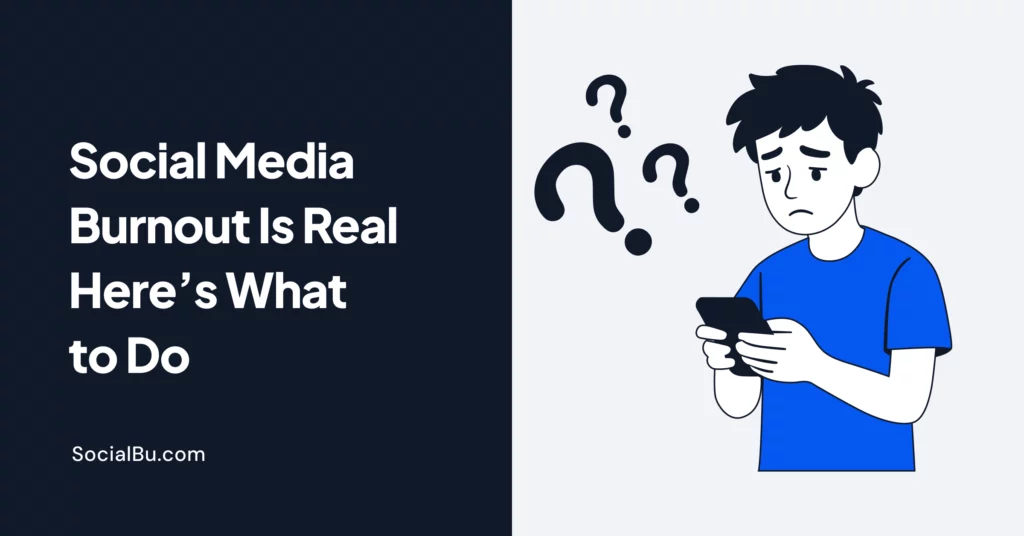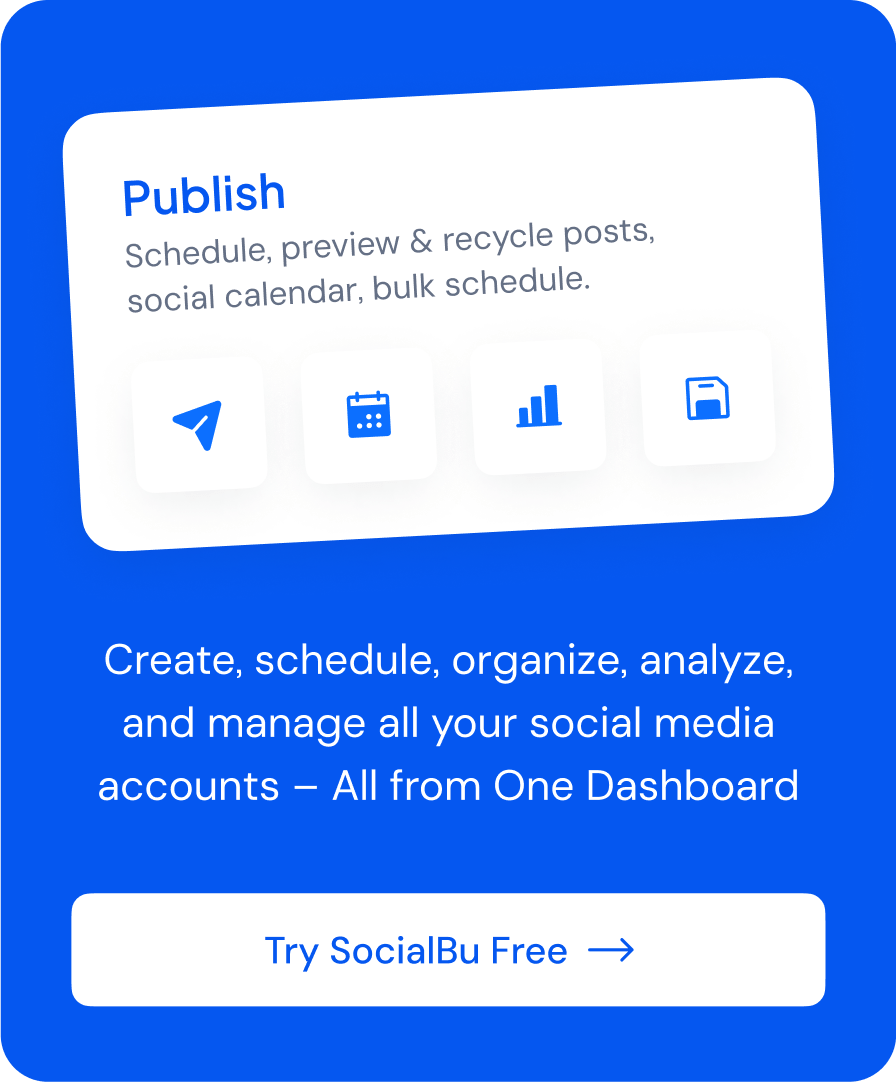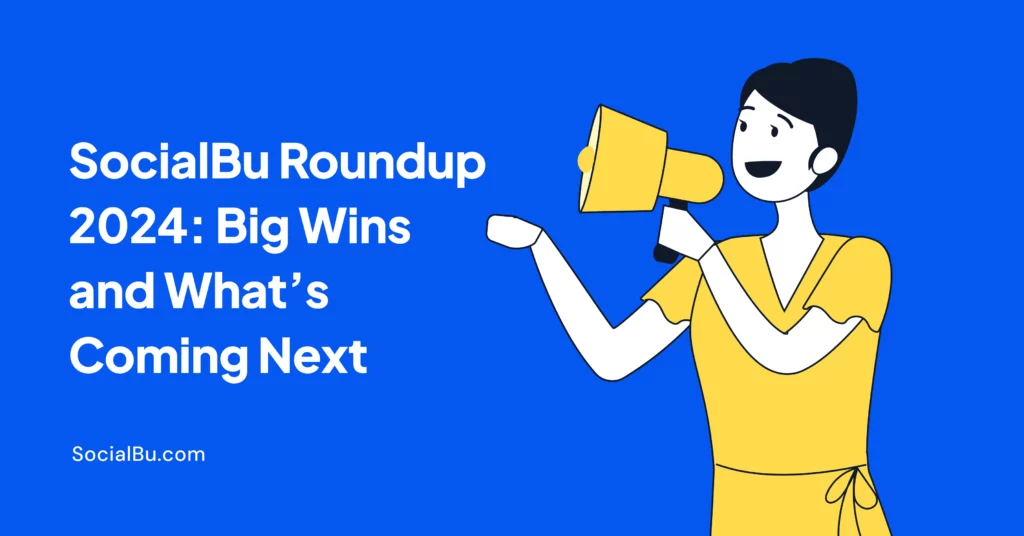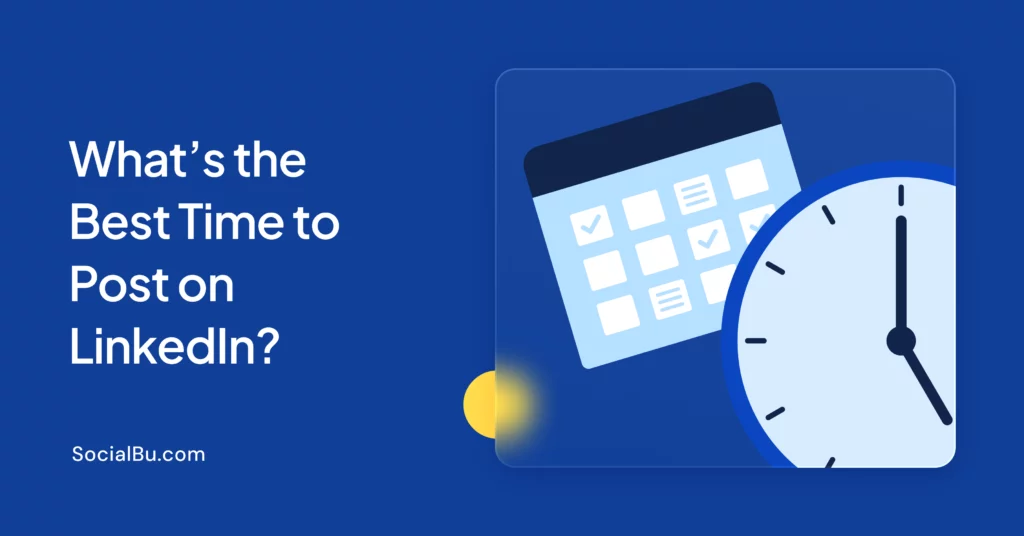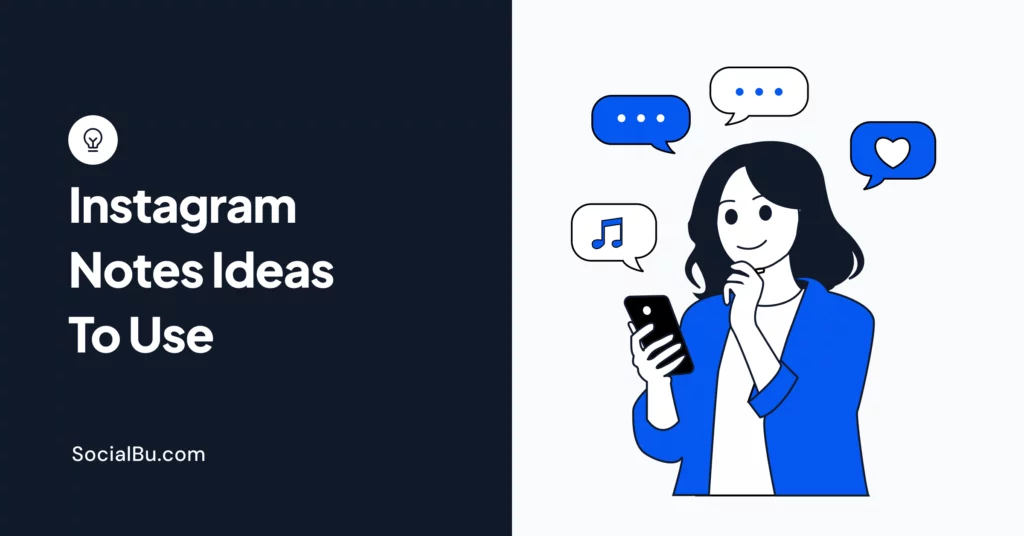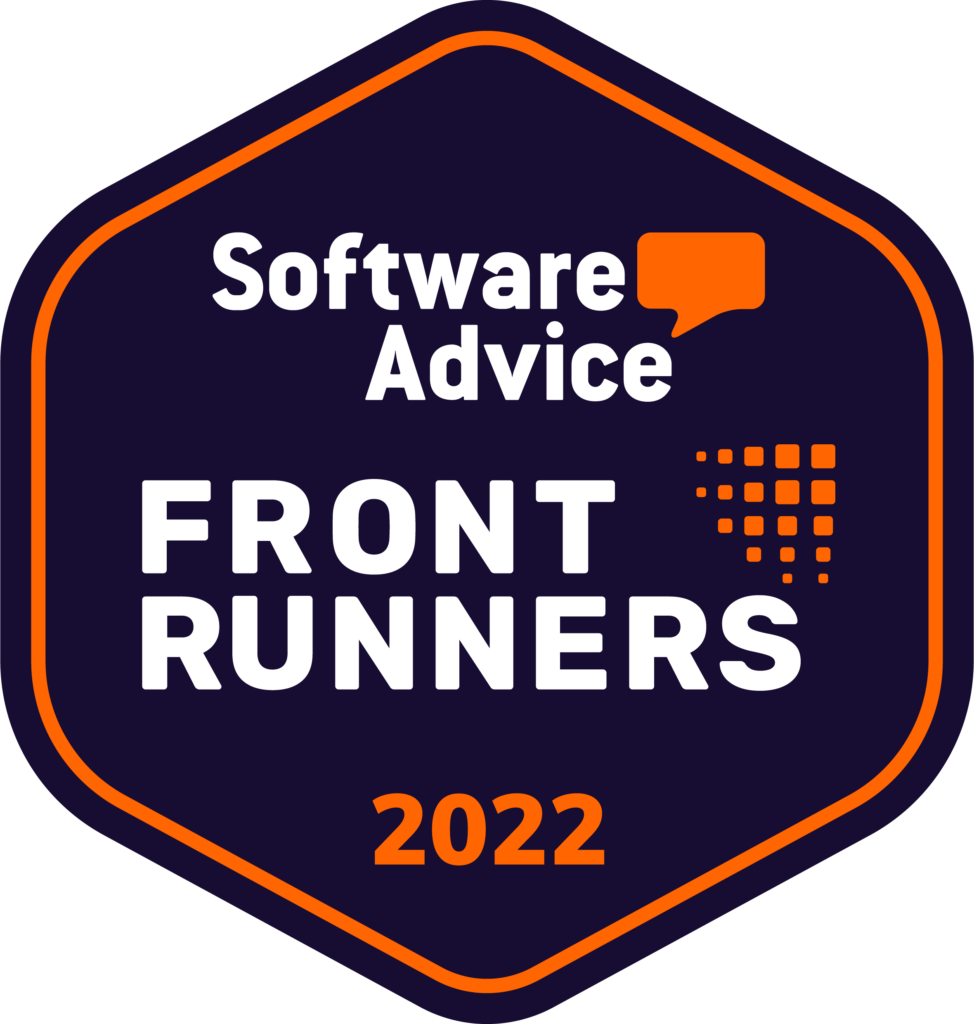Does opening your social media apps feel more like a burden than a choice? If you’re tired of chasing algorithms, exhausted by the endless scroll, and feeling a spike of anxiety with every notification, you’re not just imagining it. That feeling is real, and it has a name: social media burnout.
It’s the silent struggle for creators, marketers, and business owners who are trying to stay visible without losing their minds.
But here’s the good news: you don’t have to delete your accounts to reclaim your sanity. There’s a smarter way to manage the pressure.
In this guide, we will show you exactly how to spot the symptoms, understand the causes, and use practical strategies to fight back.
Let’s get started!
What is Social Media Burnout?
Social media burnout is the emotional exhaustion that comes from prolonged social media overuse or being chronically online, especially when you’re creating and responding under pressure. It can show up as fatigue, anxiety, or avoidance.
For creators, marketers, and business owners, that “always-on” cycle can turn into content creator burnout or creator fatigue, where posting becomes stressful instead of energizing.
Moreover, think of it as a collision of digital fatigue and performance pressure. Over time, it affects mental health and social media enjoyment: sleep can suffer, motivation dips, and decision-making gets harder.
Symptoms of social media burnout include:
Difficulty concentrating on offline tasks
Doom-scrolling before bed and waking up groggy
Comparing yourself to “perfect” feeds, leading to low self-esteem
How Can You Tell You’re Reaching Social Media Burnout
Spotting social media burnout symptoms early is key to preventing a full-blown crash. If you’re wondering whether you’re on the brink of digital fatigue, here’s a quick checklist to help you self-diagnose:
Feeling Drained After Being Online
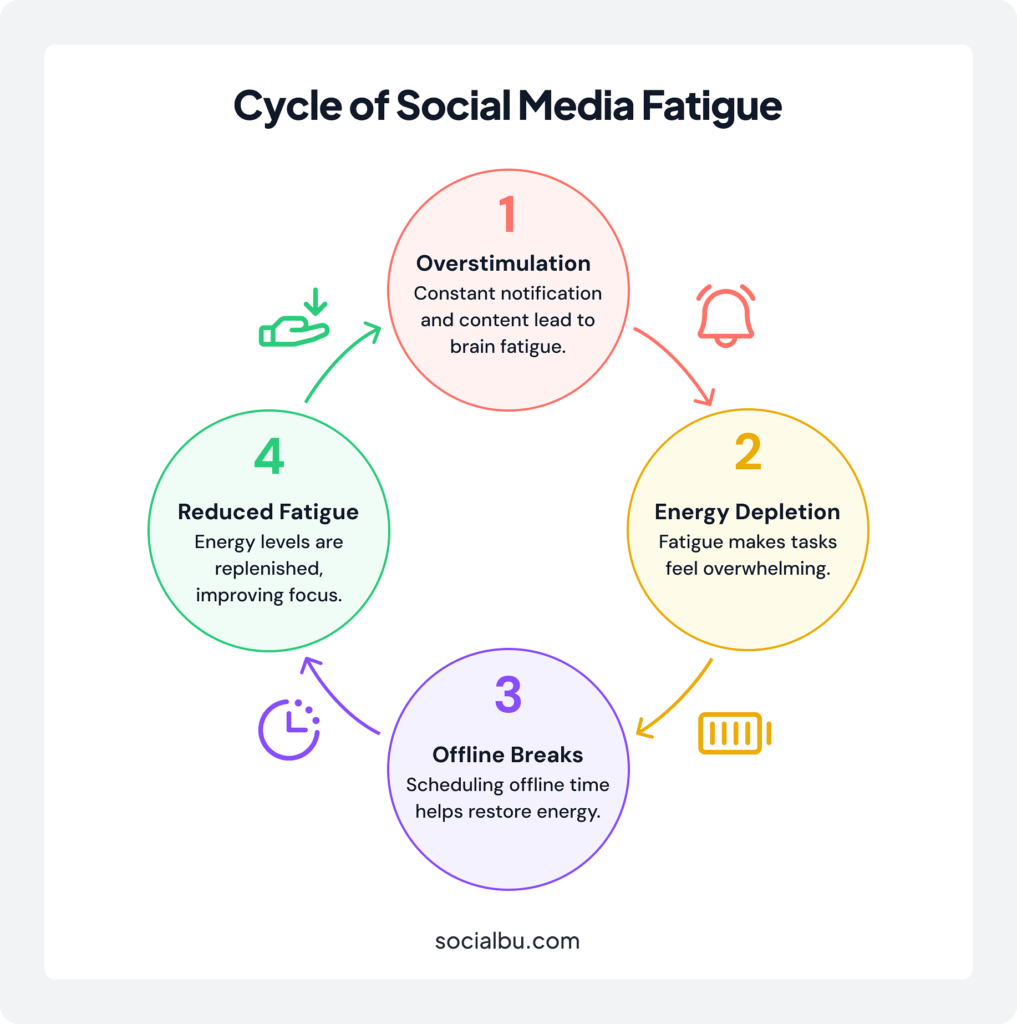
Do you feel mentally or physically exhausted after scrolling or posting? If a quick check of Instagram Reels or Twitter feed leaves you feeling tired, it’s a red flag. This social media overuse can soak up all your energy and make even simple tasks feel overwhelming.
Constant exposure to notifications and content can overstimulate your brain, leading to fatigue. Taking regular breaks and setting limits on screen time can help restore your energy levels. Try scheduling offline time daily, even 30 minutes away, which can make a big difference.
Losing Joy in Creating or Scrolling
Remember when posting a story or sharing a viral meme was fun? If creating content or browsing feels like a chore, you might be experiencing content creator burnout. This loss of joy often signals you’re stretched too thin.
The pressure to stay relevant can turn passion into obligation. When engagements start to feel forced, instead of chasing algorithms, focus on what genuinely excites you.
Feeling Anxious About Posts and Notifications
Are you obsessively checking for likes or comments? Social media anxiety is a common sign of burnout, especially when notifications feel like a constant demand for attention. This anxiety can stem from the fear of missing out or falling behind.
Here are some warning signs to watch for:
Constantly refreshing your feed for new interactions
Feeling panicked when a post underperforms
Overthinking every caption or image before publishing
What Are the Key Causes of Burnout Online
Burnout doesn’t happen overnight; it’s the result of habits, expectations, and design patterns that keep you hooked. Here are the top triggers to watch:
Chasing Algorithms Constantly
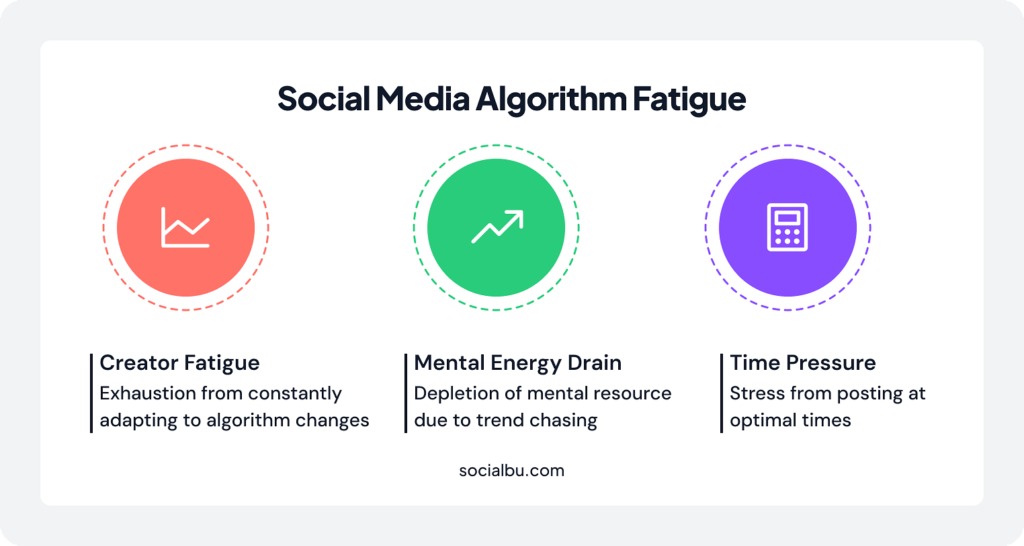
Social media platforms are always updating their algorithms, forcing you to adapt to stay visible. This endless chase can lead to creator fatigue as you try to crack the code for more reach.
The pressure to post at the “right” time or use the “perfect” hashtag can be exhausting. As constantly pivoting to keep up with trends burns mental energy fast.
Using Social Media to Escape
Many of us turn to social media to unwind, but mindless scrolling can have unintended consequences, leading to social media overuse. Instead of relaxing, you might feel more drained or disconnected. Using social media as an escape can trap you in a cycle of comparison and negativity.
Furthermore, this habit often leads to increased stress, exacerbating burnout over time.
Here’s how escape scrolling can quietly make you burn out:
Losing track of time and neglecting real-life responsibilities
Comparing your life to curated highlight reels
Feeling emotionally numb or empty after long sessions online
Using scrolling to avoid difficult emotions or decisions
Nevertheless, SocialBu’s centralized inbox lets you manage messages efficiently, reducing mental exhaustion.
How to Avoid Digital Content Burnout
Ready to fight back against social media burnout? These approaches aren’t just about cutting back but about working smarter to maintain your presence without sacrificing your mental health.
Here are five practical strategies to help you create a sustainable social media habit.
1. Batch Your Content in Advance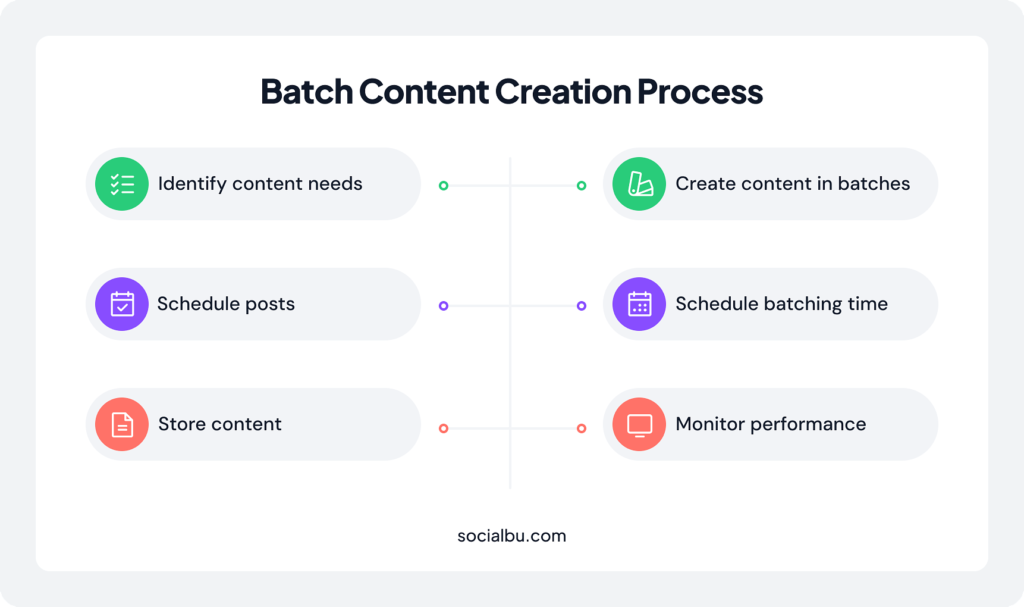
Planning and creating content in batches saves time and reduces daily stress. By setting aside a few hours each week to prepare posts, you can free up mental space for other tasks. This approach minimizes the need to scramble for daily content ideas, helping you stay consistent without the burnout.
Batching allows you to plan strategically, ensuring your content aligns with your goals while giving you more freedom in your schedule. For example, dedicating a Sunday afternoon to crafting a week’s worth of posts can make your weekdays feel less chaotic.
2. Set Weekly “No Content” Days
Taking intentional breaks from social media can be a game-changer for your mental health. Designating specific days to step away from posting or engaging gives your brain a chance to reset and recharge.
These pauses help you avoid the trap of always being “on” and can reignite your passion for creating.
Here’s how to make it work:
Choose one or two days a week to avoid posting or checking social media to recharge your creativity.
These breaks reduce social media anxiety by permitting you to disconnect without guilt.
Use this time to focus on offline hobbies, like reading, hiking, or spending time with loved ones, to restore your energy.
Pro tip: Use SocialBu’s social calendar to schedule posts in advance, allowing you to take a break from social media while your posts go live.
3. Don’t Try to Be Everywhere Online
Trying to maintain a presence on every platform is a recipe for burnout among content creators. Instead, focus on the platforms that matter most to your audience to create higher-quality content. Analyze which platforms drive the most engagement to prioritize your efforts effectively.
For instance, if your audience engages most on Instagram and LinkedIn, focus your energy on those platforms instead of struggling to keep up with TikTok or Pinterest.
4. Set Boundaries and Break Times
Social media can feel like it’s always demanding your attention, but setting clear boundaries helps you reclaim control. By creating rules around when and how you engage online, you can prevent mindless scrolling and reduce digital fatigue.
These boundaries create space for you to stay present in your life while still maintaining an active online presence. Here’s how to implement them:
- Inventory of Accounts: List all your social media profiles, including usernames, URLs, and ownership details.
- Performance Metrics: Track likes, shares, comments, reach, and impressions.
- Content Analysis: Evaluate post types, frequency, and themes for content performance analysis.
- Audience Insights: Examine demographics, growth trends, and follower growth tracking.
- Competitor Benchmarking: Include competitor social media analysis to see how you stack up.
5. Automate and Batch Content
Automation can significantly lighten your social media workload, allowing you to focus more on what you love. AI tools can suggest content ideas, optimize posting times, and handle repetitive tasks, reducing the mental load.
By streamlining your process, you can create meaningful content without the stress of emotional exhaustion from social media.
For example, SocialBu’s automation features let you manage your accounts without being glued to your phone.
How SocialBu Can Help You Avoid Burnout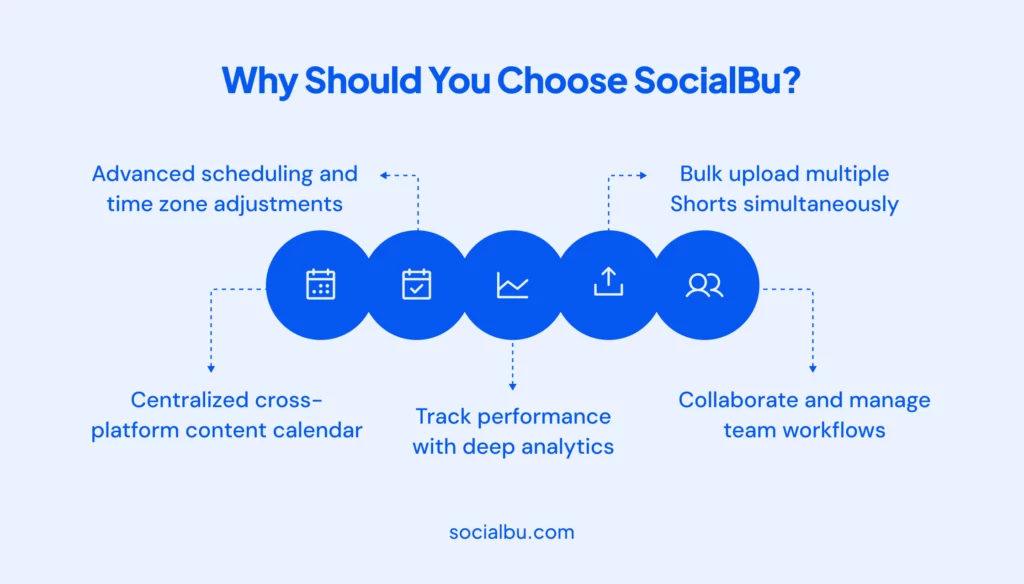
SocialBu is your ultimate partner in coping with social media stress. This powerful tool is designed to simplify your social media strategy, reduce digital fatigue, and help you stay consistent without sacrificing your well-being.
Here’s how SocialBu can make a difference:
- Manage Messages in One Dashboard: No more jumping between apps. SocialBu’s unified inbox lets you handle messages from all platforms in one place, saving time and reducing stress.
- Schedule Content Weeks in Advance: Plan and schedule posts effortlessly, so you can focus on creativity instead of daily posting pressures. This is a lifesaver for avoiding content creator burnout.
- Automate to Reduce Pressure: From auto-posting to responding to comments, SocialBu takes repetitive tasks off your plate, giving you more time to focus on what you love.
- AI Assistant to Simplify Social Strategy: SocialBu’s free AI tools suggest content ideas, optimize posts, and analyze performance, making it easier to stay on top of trends without the grind.
With SocialBu, you can streamline your workflow, reduce social media anxiety, and create a healthier relationship with your online presence.
Recommended Readings:
- How Do You Manage Content Fatigue: Tools and Automation
- How are Content Creators Earning 5–6 Figures with Content in 2025
- How to Use SocialBu Analytics to Boost Engagement Insights
Wrap-up
Social media burnout is a real challenge, but it doesn’t have to control your life. By recognizing social media burnout symptoms like feeling drained, losing joy, or battling anxiety, you can take proactive steps to protect your mental health and social media well-being. problem.
With practical burnout recovery strategies like batching content, setting boundaries, and using tools like SocialBu, you can create sustainable social media habits that keep you engaged without the stress.
Ready to take control? Try SocialBu today and discover how easy it is to manage your social media without burning out.
FAQs
What is social media burnout?
It’s a state of mental, emotional, or physical exhaustion caused by excessive social media use, often leading to digital fatigue or social media anxiety.
How do I know if I’m burned out from social media?
Look for signs like feeling drained after being online, losing joy in creating or scrolling, or feeling anxious about notifications.
What causes social media burnout?
Key causes include chasing algorithms, using social media to escape, and information overload from constant notifications.
How can content creators avoid burnout?
Batch content, set “no content” days, focus on key platforms, and automate tasks to streamline your workflow.
What are the signs of digital fatigue?
Feeling overwhelmed, unmotivated, or anxious after social media use is a common indicator of digital fatigue.
Should I take a social media detox?
A detox can help reset your relationship with social media. Schedule posts in advance so your accounts stay active during your break.
How long should I take a break from social media?
A few days to a week can be refreshing, but it depends on your needs. Experiment to find what works for you.
How do I balance social media and mental health?
Set boundaries, limit notifications, and streamline tasks to reduce social media pressure.
Can social media affect your emotional well-being?
Yes, overuse can lead to emotional exhaustion from social media, anxiety, and stress, impacting your overall mental health.
What are healthy habits for using social media?
Schedule posts, take regular breaks, and streamline your workflow for a balanced, stress-free experience.
